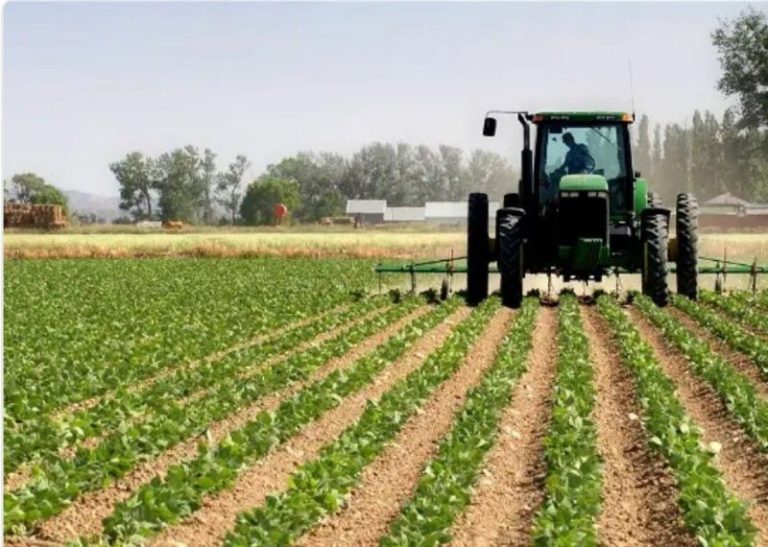Agric experts in Kebbi, Zamfara and Sokoto States say insecurity and inadequate funding are the major causes of the decline in the coverage of agricultural extension services.
Sanusi Umar, the Programme Manager of Kebbi Agricultural Rural Development Agency (KARDA), who spoke in Birnin Kebbi said that withdrawal of funding had adversely affected the extension service in the state.
He said that previously, agriculture extension services were funded by the World Bank, Federal Government and state governments.
“The World Bank was the first to withdraw its funding and then the Federal Government continued to fund the programme; unfortunately the Federal Government later withdrew and left the state governments with the programme.
“The Kebbi government was funding the programme sometime but it has stopped.”
Umar lamented that extension workers retired on daily basis thereby creating a huge gap.
He said that the transfer of technology from the workers to farmers faced hiccups as a result of paucity of extension workers.
“The level of coverage is very low as compared to when it started; it was one worker to 300 farmers but now the small portion of extension workers we have, who everyday are retiring, is now one worker to 3,000 farmers.
“It is impossible to cover such farmers given the withdrawal of funding by the stakeholders and transportation inefficiency in the service.”
According to him, the farmers incur losses everyday as they lack the technology to manage and improve their crops.
“The agency now has N-Power Agro but they cannot replace the work of the extension workers as most of them have no knowledge of agricultural technology but we are just managing with them,” the programme manager said.
On his part, the former state Secretary of All Farmers Association of Nigeria (AFAN) in Kebbi, Muhammad Idris, commended the effort of the agency.
“In spite of the challenges faced, they have been attending to the needs of their farmers.
“Whenever we have challenges and disaster in our farmlands we approach them for advice and help.
“Sometimes, we face challenges of pests and diseases in our farmlands; we approach them and they provide advice and support in spite of their inadequacy and small number,” he said.
On his part, the state Coordinator of the Federal Ministry of Agriculture and Rural Development, Shehu Abdullahi, said the ministry trained 50 agricultural extension workers in 2023.
He said the training was aimed at enhancing production practices and equipment for technical support to farmers in the state.
Abdullahi said the training was one of the ministry’s plans to halt the drift in the agricultural extension system.
“The training also aimed at pursuing the revitalisation agenda of the Nigerian economy by the Federal Government.
“The training is one of series of batches that will empower workers with knowledge that will enhance service delivery to farmers both in terms of production practices and equipment for technical support,” he said.
On his part, Dr Ahmad Umar- Ambursa, the Permanent Secretary, Kebbi State Ministry of Animal Health, Husbandry and Fisheries, said that that the state had been blessed with about 10 million livestock consisting of cattle, goats and sheep.
Umar-Ambursa said that the Federal Government had already provided vaccines to vaccinate about 25 percent of the livestock in the state.
He explained that the government hoped to achieve between 70 and 80 per cent vaccination coverage of livestock in state by the end of the year.
“Human health is interwoven with animal health with regard to the healthy condition of meat for consumption and food security,” he said.
In Zamfara, the state Chairman, of All Farmers Association of Nigeria (AFAN), Saidu Kura, said growing insecurity in rural communities had resulted in farmers abandoning farm lands.
Kura said the challenge of every farmer in Zamfara at present remained insecurity as thousands of hectares were uncultivated due insecurity.
“It is not that extension worker services are not among farmers problem in the state; but we need peaceful atmosphere in our farms to request for the services of extension workers,” Kura said.
The Director Extension Services in state Ministry of Agriculture, Ibrahim Umar, said the services of extension workers to the farmers had been contributing to a successful harvest in both dry and raining seasons farming.
Umar said the challenge of extension services in the state was funding and other logistics support to reach farmers in the deep forests.
In Sokoto, the Project Manager of Sokoto State Agricultural Development Project (SADP), Dr Almustapha Muhammad, said the state government was working towards achieving the ratio of one extension worker to 400 farmers in state.
Muhammad said the state government was targeting at employing 300 extension workers.
He said 67 extension workers were employed in 2017 in addition to existing agricultural extension workers aimed at boosting agriculture in the state.
The project manager said extension workers served as trainers, advisors, project managers, community developers and policy advocates.
The AFAN Chairman in Sokoto State, Jamilu Sanusi, advised the state government to reactivate commodity board, extension services in order to access Central Bank of Nigeria (CBN) stabilisation funds and other supporting windows.
Sanusi said such move would enhance food and agricultural allied production, commercial activities and provide job opportunities for citizens across the state.
He also urged the state governments to establish soil laboratories for farmers to have good knowledge of their farms’ soil conditions, nutrients needs and other inputs for maximum harvest.


